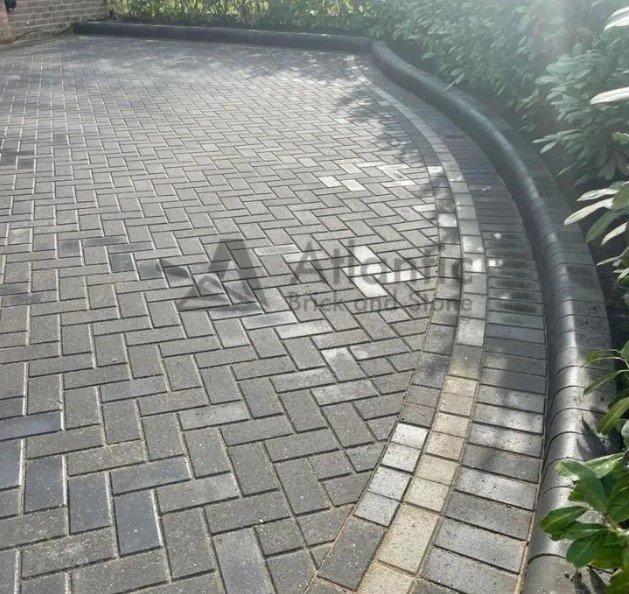Installing interlocking driveway pavers is a significant investment that homeowners want to last for many years with minimal maintenance. While hiring professional contractors is usually the best approach, it’s still valuable for homeowners to understand some potential problem areas. Being informed allows homeowners to have important discussions upfront and ensure the project is completed properly from the start. This comprehensive guide details key factors to address throughout the process.

Interlocking concrete pavers are a smart choice for hardscaping driveway surfaces. The interconnecting modular units, made of heavy-duty concrete or natural stone, lock solidly together through lugs or pegs on the bottom. This creates a stable yet flexible driveway material that can be laid in various patterns. Beyond substantial curb appeal, these pavers are also very sustainable for withstanding vehicular traffic long-term in an environmentally-friendly way. However, there are some crucial factors installers must carefully address, like preparation, materials used, and drainage, to guarantee an interlocking concrete driveway built to last for many decades with minimal maintenance.
A stable and level subsurface is crucial yet often neglected. The foundation of any quality paving installation requires careful preparation and compaction of an ample gravel base, usually at least 6 inches thick. Base requirements will vary depending on local building codes and application, but ensure contractors specify plans that guarantee stability without settling. Ask questions if preparations seem inadequate.
Driveways experience significant weight from vehicles daily. Choosing units not rated for vehicular loading risks premature cracking or failure. Lighter pavers may seem cheaper but could need replacing, negating savings. Carefully research options and confirm proposed materials can withstand projected wear.
Even experienced installers sometimes overlook this critical factor. Without proper grading for runoff or a robust subsurface drainage system, water penetrating underneath can lead to issues like cracks from freeze-thaw cycles, shifting pavers, or dirt intrusion. Poor drainage solutions may seem sufficient but lead to future problems. Evaluate proposals closely.
While professionals use proper tools, simple mistakes still occur, like inconsistent spacing, poor edging attachment, lack of vibratory compaction, or failing to follow recommended installation methods. Request documentation of specific planned techniques to ensure optimal structural integrity and aesthetics. Improper installation outweighs other errors.
While tackling a DIY paving project may seem like a way to save money, there are risks involved when attempting an installation without professional experience and proper equipment. It’s easy for a homeowner to improperly prepare the base, choose the wrong paver type, lay the pavers unevenly, or inadequately compact the finished surface. These mistakes can compromise the structural integrity and long-term performance of the paving, potentially resulting in cracking, shifting, and premature failure that requires replacement.
Opting to hire a reputable local paving installation company provides significant advantages over an amateur DIY attempt. Experienced hardscape contractors have extensive knowledge of paver types, base preparation techniques, slope and drainage requirements, and proven methods for careful installation. They also have the proper heavy machinery required, such as plate compactors. This ensures your paving project will meet design specifications and compliance standards for your local building codes. Professionally installed pavers are engineered to last for decades with minimal maintenance.
Atlantic Brick and Stone is a top-rated masonry and hardscaping contractor based in Fredericton, New Brunswick. In business for over 15 years, our experienced team specializes in various hardscaping installations, including patios, walkways, and driveways constructed with interlocking concrete pavers. We take pride in our meticulous approach to project prep work, installation, and the highest quality, long-lasting results.
Homeowners can rely on Atlantic Brick and Stone’s craftsmanship and extensive expertise when considering any hardscaping project. Contact our experts today to inquire about free estimates for your paver installation needs. Atlantic Brick and Stone is dedicated to customer satisfaction and providing outstanding design projects that exceed expectations.
Compacting the base is important because it helps ensure a stable and level surface for the pavers. It helps prevent settling and shifting of the pavers over time.
The click-and-drop method is a technique used for installing interlocking driveway pavers. It involves aligning the edges of the pavers and then dropping them into place, creating a tight and secure bond.
Concrete pavers are a popular choice for driveways due to their durability, versatility, and aesthetic appeal. They are available in a wide range of colors, shapes, and sizes, and can be easily replaced if damaged.
Bedding sand is a layer of sand that is placed between the base and the pavers during installation. It helps create a level surface for the pavers and allows for proper drainage and stability.
When choosing the type of pavers for your interlocking driveway, consider factors such as durability, style, color, and budget. Some popular options include concrete pavers, natural stone pavers like limestone or sandstone, and brick pavers.
GET STARTED
Create stunning structures with our residential and commercial masonry services in Fredericton. From meticulous designs to the completed build, our process is professional and rewarding, and we can’t wait to build your dream with you.
Atlantic Brick and Stone, one of the best masonry contractors in Fredericton, NB
Contact
8 Muskie Street, Lower Kingsclear, New Brunswick E3E 0E7, Canada